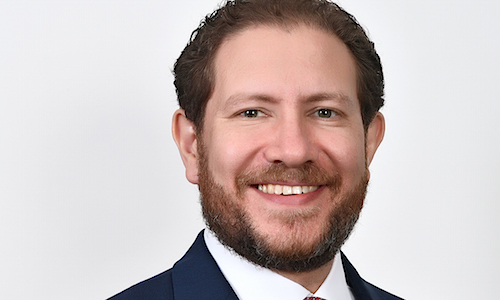finews Reading List: Banker’s Recommendation
Leaders in the banking and asset management industry in APAC and Switzerland shared with finews.asia their top book recommendations for the season.
Books are a gateway to the world. Reading allows you to experience the perspectives of many lives, times and places from the comfort of your living room couch or a hammock on the beach. Banking and asset management leaders shared with finews.asia their latest perspectives via their top book recommendations.
Harshika Patel, Asia Private Bank CEO and Hong Kong CEO, J.P. Morgan
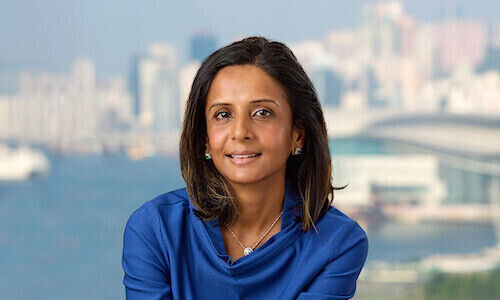
«Old Hong Kong – The Way We Were» by Mr. Lau Koon Tan
 What the book is about:
What the book is about:
«Old Hong Kong» features 108 beautiful black and white photos that capture meaningful, personal moments in Hong Kong during the 1960s and 1970s. Seven sections in the photobook showcase Hong Kong’s diverse urban landscape between transportation, city, public estates, living, hardship, children and the countryside. For some, it may be a walk down memory lane through the old days. For others, the photos capture a special period where great changes were taking place, underscoring how far Hong Kong has come in 50 years.
Why I recommend it:
In celebration of J.P. Morgan’s centennial in Hong Kong, we selected this photobook as a special anniversary spotlight for our 25th annual «Summer Reading List» in Asia. Mr. Lau Koon Tan is a well-known, award-winning local documentary photographer in Hong Kong – often compared to the likes of Fan Ho. This urban photography masterpiece will have you repeatedly revisiting captivating scenes from Hong Kong’s past.
Yee Kim Tan, Market Head Greater China Singapore and Branch Manager Singapore, Julius Baer

«How To Know A Person» by David Brooks
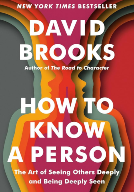
What this book is about:
This book explores the art of building deep, meaningful relationships with others. It offers practical advice on how to see yourself and be seen by others, how to make conversations meaningful and how to apply empathy. David Brooks' writing is light and humorous, often with an ironic tone. The suggestions offered apply to various types of relationships – from close friends and co-workers to casual acquaintances.
Why I recommend this book:
In today's corporate world, interpersonal skills are crucial for effective leadership. Leaders who recognize and celebrate the strengths and successes of their employees foster a more cohesive and supportive workplace culture. By creating an environment where everyone feels valued and acknowledged, productivity naturally increases.
Garth Bregman, Head Wealth Management Singapore and Southeast Asia, BNP Paribas
«The Man Who Solved the Market: How Jim Simons Launched the Quant Revolution» by Gregory Zuckerman
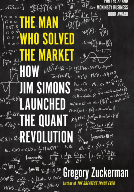
What this book is about:
When Jim Simons passed away earlier this year at the age of 86, media coverage was limited. He was not a household name but within the investment industry, his track record and influence are unparalleled. The returns of well-known investors like George Soros, Warren Buffett, or Ray Dalio pale in comparison to Simons' Renaissance Technologies (RenTec) Medallion Fund. At the time of the book's publication in 2019, Medallion had an extraordinary 31-year history with an average net return of 39 percent. Before accounting for the extremely high management fees, the average annual return was an astounding 66 percent.
Why I recommend this book:
Gregory Zuckerman’s book follows Simons’ life, from his time as a CIA codebreaker and mathematics professor to the founder and leader of RenTec, and finally to his role as a Democratic Party donor and philanthropist. It also introduces other fascinating figures, including many professors of mathematics, physics, computer science and statistics. Among them is Robert Mercer, who served as co-CEO of RenTec for several years but is better known for his key role in Donald Trump's 2016 presidential campaign. The book explores Simons and RenTec as the driving forces behind the quantitative revolution in the financial industry, including the early use of machine learning, which helped Medallion generate over $100 billion in trading profits.
This book is highly recommended for anyone interested in quantitative finance or hedge funds.
Eric Sarasin, Ex-Banker and Current Entrepreneur, Investor and Philanthropist
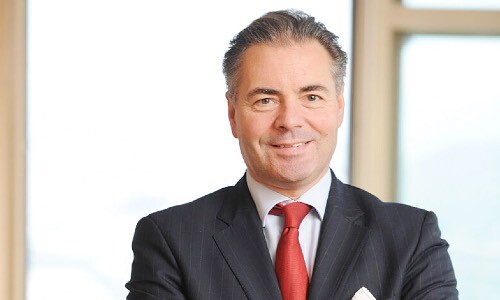
«The Key Man» by Simon Clark and Will Louch
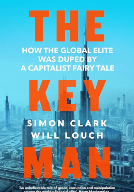
What this book is about:
In this gripping tale of lies, greed and compromised idealism, two «Wall Street Journal» reporters investigate a man whom Bill Gates, Western governments and other investors entrusted with billions of dollars to generate profits and end poverty. However, this man is now accused of orchestrating one of the largest and most audacious financial frauds in history.
Why I recommend this book:
I recommend this book by Simon Clark and Will Louch to anyone interested in complex financial schemes and cunning financial fraudsters. There is much to learn from it.
Harsh Agarwal, Head DPM for Emerging Markets, Deutsche Bank
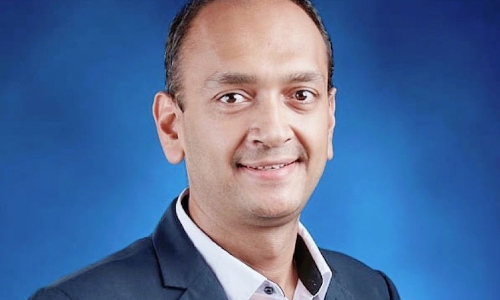
«The Intelligent Investor» by Benjamin Graham
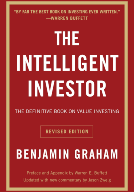
What this book is about:
This book, first published in the 1950s, is hailed by Warren Buffett as «by far the best book on investing ever written». The author, Benjamin Graham, is regarded as the father of «Value Investing».
Why I recommend this book:
At Deutsche Bank, we recently guided our summer interns through the Discretionary Portfolio Management (DPM) department. As part of their projects, we sometimes ask them to analyze new investment opportunities in both bonds and equities.
It’s always refreshing to see these budding professionals apply the fundamental principles of investing that they learn in school. This reminds me of the often-overlooked concept of «Value Investing.» In today's world, investment decisions are frequently driven by «fear of missing out» (FOMO) and herd behavior.
However, in DPM, we are firmly committed to fundamental analysis and the strong team of analysts we share with our asset management business (DWS) reflects this investment approach for our clients.
Samuel Huen, Global Head of Legal and Regulatory Compliance, Bank of Singapore

«It’s Not Me: 40 Years as Director of The Association of Banks in Singapore» by Ong-Ang Ai Boon
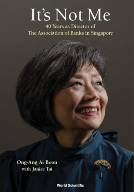
What this book is about:
This book by Ong-Ang Ai Boon, the first and only director of the Association of Banks in Singapore (ABS) since its inception, narrates the development of the banking industry in Singapore from the perspective of someone who not only witnessed it firsthand but also played a crucial role in transforming Singapore from a young nation into a leading global financial hub.
Why I recommend this book:
I recommend this book by Ong-Ang Ai Boon to anyone interested in the inner workings of the banking industry in Singapore. It offers a fascinating insight into the motivations and actions of a legendary and iconic figure in the industry, highlighting how faith and convictions shaped Ong-Ang Ai Boon's actions. The book provides many inspiring lessons in leadership and management, and it explores how to find meaning and fulfillment in both work and life.
Morgane Delledonne, Head Investment Strategy, Global X ETFs
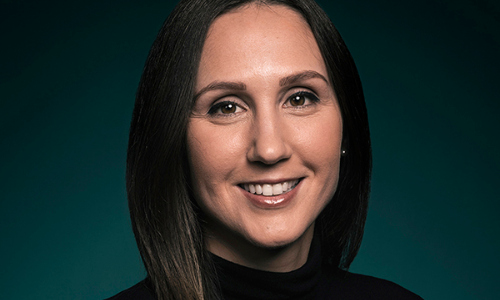
«The Overstory» by Richard Powers
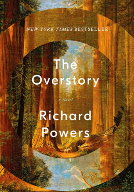
What this book is about:
Richard Powers' book centers on nine Americans, each with different connections to and life experiences with trees. Their lives are intertwined in various ways as their experiences eventually converge on a common theme: the destruction of forests. To delve deeper into this topic, the book also features three characters that help drive the story forward.
Why I recommend this book:
As climate change is one of the biggest challenges facing our world today, this book makes a fantastic contribution to the debate. It offers an in-depth exploration of environmental science, ethics and change, but I would also describe it as transformative, as it has changed the way I perceive nature. Overall, I find the book beautifully written, particularly because it seamlessly weaves together different stories into one while highlighting important ecological and philosophical themes.
Franck Sabbah, Head of Sales Asset Management, Continental Europe, Berenberg

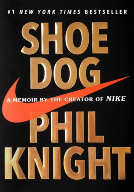
What this book is about:
The book tells the story of the Nike brand and its founder, Phil Knight. It explores how an athlete, dissatisfied with his gear, decided to offer a solution to other athletes.
The story begins with his background and love for track and field. It then focuses on the founding and early days of the company, which eventually became a market leader in a highly competitive industry.
Throughout the book, readers learn about the founder's persistence despite the challenges of getting his business off the ground, as well as the short-term solutions implemented to survive. The story also highlights the importance of surrounding oneself with trustworthy people. The book is filled with anecdotes, such as the famous Swoosh (the iconic logo) being purchased for less than $50.
Why I recommend this book:
«Shoe Dog» could easily have been titled «The Journey of an Entrepreneur». Innovation, creativity and marketing are ever-present throughout the story. The section dedicated to the deal with Michael Jordan – a basketball star who became one of the most influential athletes of his time – illustrates how creativity and a willingness to take risks can set you apart from more established competitors.
At that time, Adidas and Converse dominated the basketball market, and the idea of creating a brand under the name «Air Jordan» and giving the athlete a percentage of the revenue made all the difference.
Adrian Daniel, Portfolio Manager, Global Equities, MainFirst

«The Changing World Order» by Ray Dalio
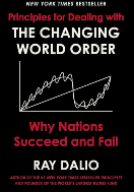
What this book is about:
In «The Changing World Order», renowned investor Ray Dalio analyzes the patterns that shape the rise and fall of nations. Drawing on historical cycles, he examines debt, wealth gaps, internal conflicts and external threats. Dalio explains the «Big Cycle», which moves from phases of peace and prosperity to tension and conflict. Using examples like the Roman Empire, the British Empire and the United States, he illustrates how economic inequality and excessive debt often trigger crises and shifts in power.
In addition to his historical analysis, Dalio leverages his extensive experience in the financial world to shed light on current global economic and political developments, such as the rivalry between the US and China and the debt levels of Western countries, to highlight future challenges and opportunities.
Why I recommend this book:
Ray Dalio's «The Changing World Order» provides a thorough analysis of historical and economic cycles, making it relevant not just for investors but for anyone interested in global affairs. Dalio's clear writing style and his ability to explain complex relationships understandably make the book particularly valuable. In light of the current economic and geopolitical changes, it helps readers to better understand and respond to these dynamics.
Yvonne Häring, Head Products and Actuarial, Pax

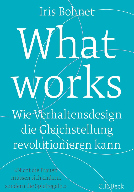
What this book is about:
For decades, the top five American orchestras had a female representation of only 5 percent. Women consistently failed auditions in front of male juries. It was only when the jury could no longer see whether the performer was a man or a woman that the proportion of women increased.
In hiring, promotions and salary decisions, women are still too often disadvantaged. Swiss Harvard professor Iris Bohnet in her book, «What Works», shows that the cause is often distorted perceptions that influence our decisions. This can be changed.
Why I recommend this book:
I firmly believe that a work environment where everyone, not just the majority, can thrive is healthier, more productive and more efficient. At the same time, I know that we are all more biased than we think: the more overloaded our brains are, the more likely we are to judge based on stereotypes. As a leader, I want to counteract these unconscious biases by creating a better decision-making environment – Iris Bohnet calls this behavioral design and offers concrete and quickly implementable approaches to achieve this.
Daniel Salzmann, CEO, Lucerne Cantonal Bank
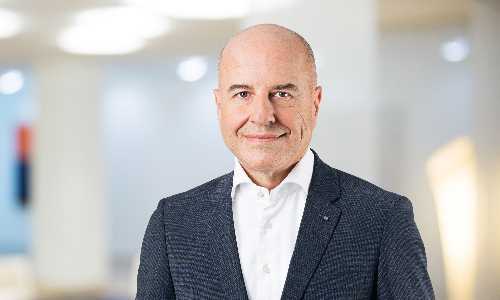
«Noise» by Daniel Kahneman, Olivier Sibony and Cass R. Sunstein
 What this book is about:
What this book is about:
Nobel laureate Daniel Kahneman and his co-authors analyze how a variety of random factors can disrupt and impair human decision-making in their book «Noise».
These random disturbances («Noise») differ from the more well-known systematic biases which can also negatively affect decisions. The authors provide compelling examples of how to recognize «Noise», manage it and thereby improve the quality of decisions.
Why I recommend this book:
It's worth picking up this extensive book (480 pages!) repeatedly to question your own approach to decision-making. Especially as leaders, we must remain self-critical and protect ourselves as much as possible from judgment errors – «Noise» provides fascinating insights to help with this.
Andreea Stefanescu, CEO, Solution & Funds
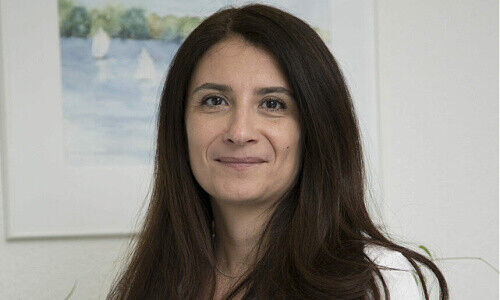
«The Café on the Edge of the World» (eBook) by John Strelecky
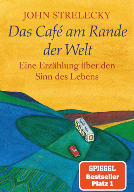
What this book is about:
«The Café on the Edge of the World» is a vividly written, humorous and at times thought-provoking book. A small café in the middle of nowhere becomes a turning point in the life of John, a stressed-out manager who is always in a hurry.
He originally plans to just take a quick break but through conversations with the cook, a server and a guest, John ultimately explores the meaning of life through three questions posed at this very café.
Why I recommend this book:
In today's fast-paced world, shaken by crises and filled with uncertainties, this book by John Strelecky offers a brief respite and encourages reflection on our behaviors and underlying patterns. In short, it inspires readers to think about their priorities.
Ivona Linder, Head Corporate Affairs, Rothschild & Co
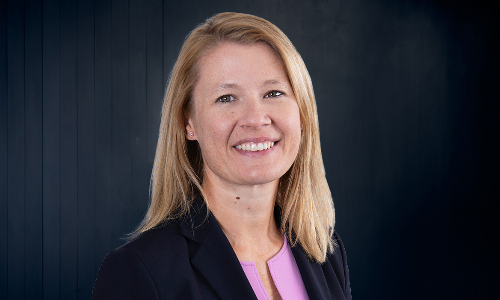
«The Limit is Just Me» by Jonas Deichmann
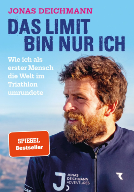
What this book is about:
Around the Earth in the triathlon disciplines of swimming, running and cycling. While the world was in lockdown, Jonas Deichmann circumnavigated the globe in 14 months, experiencing extreme challenges and moments of immense joy.
He swam through the Adriatic Sea, battling treacherous currents and sometimes swimming in the dark; cycled 20,000 kilometers from Dubrovnik to Vladivostok in freezing conditions; and ran across Mexico in 120 marathons. Along the way, he was joined by people of all ages who spontaneously accompanied him for a few kilometers, and he was inspired by millions of fans online.
Why I recommend this book:
To me, triathlon is so much more than just «swim-bike-run». It’s a test of strength against competitors, technology, nature and, most importantly, oneself. It cultivates discipline, perseverance, and self-motivation – all qualities that are very useful in everyday life.
Jonas Deichmann took this adventure even further, demonstrating that through a triathlon, one can push past personal and actual limits and even inspire hope. Above all, he shows that there is more within us than we or others often believe – a perfect motivation for any challenges the second half of the year might bring.
The recommendations were compiled by Claude Baumann, Dominik Buholzer, Dina Holz and Richard Otsuki.



